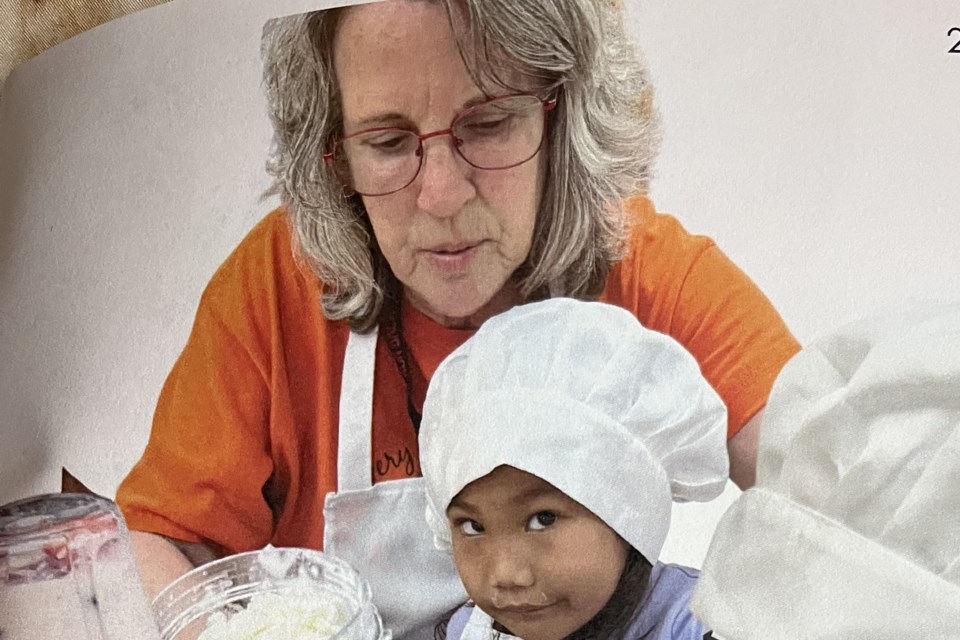A Prince George family is facing deportation and the loss of critical health care for their daughter due to recent changes to Canada’s immigration laws.
Charisma Isafre and Gandy Boy Rosales, along with their six children, have lived in Prince George for the past three years. But under new rules that came into effect Jan. 21, the family is facing deportation by Dec. 10.
The federal regulations limit family open work permits to spouses of foreign workers in TEER (training, education, experience and responsibilities) category 0 or 1 occupations, or certain TEER 2 or 3 jobs linked to government priorities or sectors facing labour shortages.
This means that even if Gandy Boy is allowed to stay, his wife and children could be required to leave.
“It’s tough for immigrants. The rules are always changing and it just feels like we’re floating,” said Gandy Boy.
The change follows a 2024 announcement by the federal government outlining plans to reduce the number of temporary residents in Canada from 6.5 per cent of the total population to five per cent by 2026.
Caught in the middle of this policy shift, the Rosales family fears their five-year-old daughter, Princess, who has complex medical needs, could suffer a serious setback if they are forced to return to the Philippines.
Princess Rosales has cerebral palsy and arrived in Canada with little to no independent movement and no speech. Since July 2023, she has received support from the Child Development Centre (CDC) in Prince George and has made what therapists describe as significant progress.
“She went from a little girl who had no independent movement, couldn’t sit on her own, and had no preschool skills — she didn’t know her colours, numbers, letters, nothing,” said Pat Hamilton, lead occupational therapist at the CDC.
“Now, after two years, she can move independently in a wheelchair or bum-scoot on the floor. She knows all her colours, she can count, write her name, cut along a line — all the things a typical kindergarten student does. She can’t walk independently, but she’s got the wheelchair.”
Hamilton said losing access to these supports would be devastating for Princess.
“I think it’s a real crime,” she said. “This is a family that’s trying so hard. Both Mom and Dad work. The kids go to school. She’s made so many gains.
“If she goes back to the Philippines, she won’t be able to go to school. Children with disabilities there have to attend private school, and that school is in a different city. I think she has a real chance to grow into an independent, productive person. But back there, she’ll likely just stay at home.”
Charisma said her daughter is now able to talk, move her arms, and is becoming less shy every day.
“She has everything,” said Charisma. “The government support for her so far is the best medical support I’ve seen in my 40 years of life. She has her wheelchair, an educational assistant at school, and therapy both at school and at home with the CDC. I’m so grateful — she has really improved.”
She added that the health-care system in the Philippines could not offer the same level of care, and paying out of pocket would be difficult or impossible.
“I’m especially worried for her because it’s a big difference,” said Charisma. “If you have kids like her back home, and you don’t have money, there is no care. Medical is not free for her.
“In my experience, if you have a child with a disability, you line up at 6 a.m. and go home at 5 p.m. It’s worse for the child. Here, they call you for an appointment and you’re in and out in 30 minutes. They don’t risk the child waiting all day.”
The Rosales family is currently seeking to appeal their deportation on humanitarian and compassionate grounds.
“My family would be grateful if the government would allow us to become permanent residents with Princess’s health issues in mind,” said Gandy Boy.
Humanitarian and compassionate (H&C) applications are a last-resort option for people facing removal from Canada. These applications consider whether the applicant or their family would suffer undue hardship or face a unique situation if forced to leave.
H&C cases are assessed individually and are often complex and difficult to navigate.
Although the family is hoping to stay in Canada, they are preparing for the possibility of returning to the Philippines.
“We understand. I always say I understand,” said Charisma. “The government is thinking about what’s best for the country. But we’re still hoping — hoping for something better.
“If we actually go home, I just want to say thank you to all the people here in Prince George. We are so grateful for them. Especially at the CDC. They have helped a lot.”



